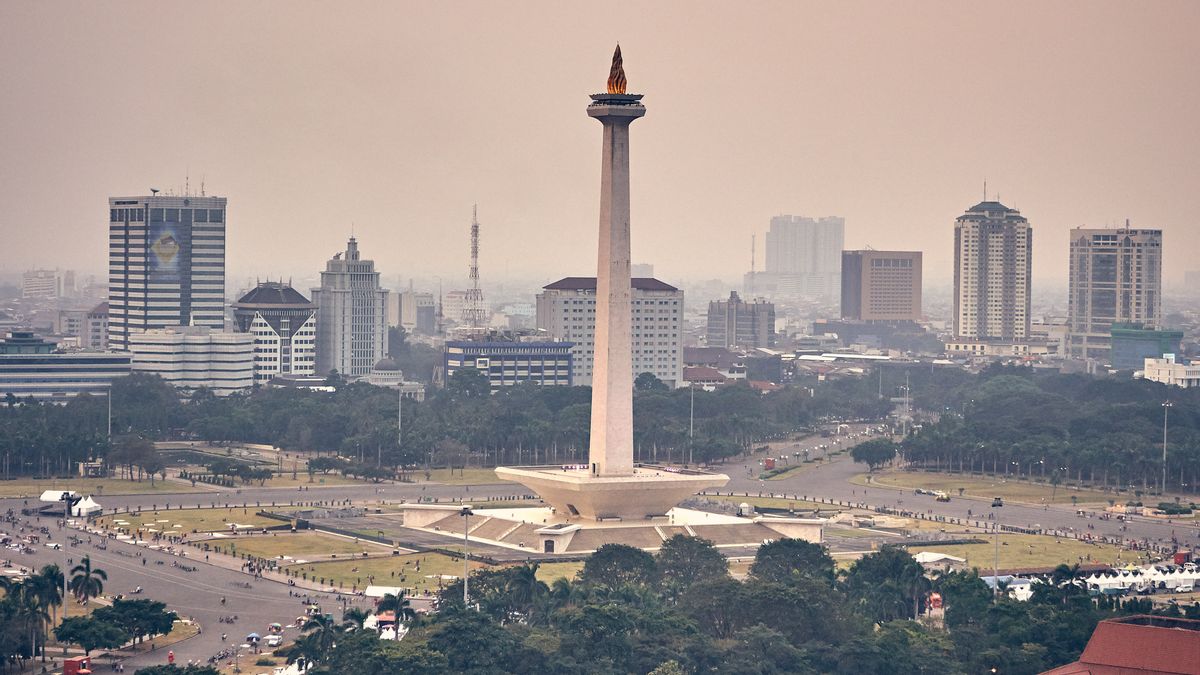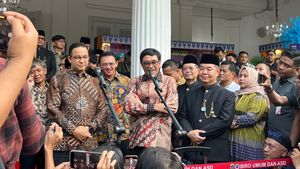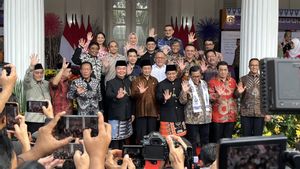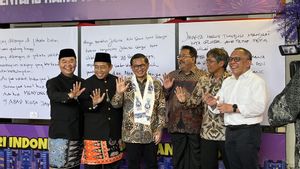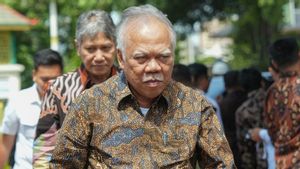JAKARTA - "We are building a national monument for the greatness of the nation. I hope all Indonesian people will help build the National Monument. " That is the content of a letter from the First President of Indonesia, Soekarno, dated July 29, 1963, addressed to all Indonesians.
The letter made the public agree that Soekarno was the person who initiated the national monument or better known as the National Monument (Monas). The towering shape of Monas was inspired by the Eiffel Tower in Paris, France.
The initial goal, Monas was built as an identity and a beacon of the nation's struggle. The initial idea of building Monas had stuck in Soekarno's mind ever since he returned to control of Jakarta. Prior to that, Soekarno served at the Presidential Palace Gedung Agung, Yogyakarta.
The steps to build national identity began with the formation of the National Committee on August 17, 1954. At that time, Sarwoko Martokusumo became chairman. There was an important message that Soekarno conveyed to Sarwoko.
The message was for Monas to be built on Merdeka Square, which is right in front of the Merdeka Palace, Jakarta. That way, Monas becomes a symbol of splendor that welcomes Palace guests. For Soekarno himself, Monas was a symbol of the greatness of the Indonesian people.
"Yes, the Indonesian people are great people. Yes, the Indonesian people are becoming a great people again," said Soekarno in a speech.
Contest
Monas development is the work of many of the nation's children. The Monas design was taken through a competition which began on August 17, 1955. The contest managed to collect 51 works. However, the work of architect Frederich Silaban was chosen because it was considered the strongest to translate the message of the character of the Indonesian nation.
However, the President is an architect. He is not easily satisfied. The second wave competition was held. Opened from 10 to 15 May 1960, the competition managed to attract 222 people with a total of 136 works. Of the many works, none matched Frederich Silaban's work. Construction began when an architect named RM Soedarsono was appointed as Silaban's collaborator. Soedarsono's task was to harmonize the Monas design according to Soekarno's wishes.

Quoted from Historia, the construction began with the agreement to build a 111.70 meter high monument (lingga) on a 17-meter-high rectangular courtyard. Inside the building there is a museum with a height of 8 meters. Symbolically, the numbers 17-8-45 refer to the day on which Indonesia became independent. And that's what Bung Karno liked.
The existence of a historical museum in Monas was Bung Karno's hope so that any Indonesian who entered could understand his identity as the Indonesian nation. This impression was strengthened by the Monas which was built on the will of the people and collected through donations from the people, businessmen, as well as donations from cinema tickets.
"I did not wake up with a single penny rather than the state budget," said Soekarno.
Monas today
Built in the Soekarno era, Monas was inaugurated by President Soeharto on July 12, 1975. Statistics show that Monas was built by an initiator and two architects after six years of deliberating ideas and 14 years of physical development.
Soekarno's goal to make Monas a symbol of admiration was fruitful. At that time, Monas was a mandatory agenda for tourists and foreign guests visiting. There are those who visit Monas as a medium for historical education or who take advantage of visits to Monas as a means of recreation. At that time, Monas was a cool location with many shady trees surrounding it.

That condition immediately changed. Currently, the Provincial Government (Pemprov) of DKI Jakarta is revitalizing the Monas area. The provincial government plans to build the South Plaza Monas and use it as an open space that accommodates government activities, both central and regional. Unfortunately, this revitalization project has cut down at least 190 trees.
The community protested against the move by the DKI Pemprov. WALHI Jakarta criticizes the Jakarta Provincial Government's steps as a reflection that Anies' government is still far from taking sides with environmental aspects.
"The Pemprov should add green space instead of cutting trees. This attitude of the provincial government shows that they are still not in favor of the environment and tend to take environmental issues lightly, "said Director of WALHI Tubagus Soleh Ahmadi to VOI, Friday, January 24, 2019.
Perhaps, considering that the goal of Monas development is not only echoed by the people. The government as state administrator needs to be even more stern considering why the nation's founders built Monas with majesty and harmony in life.
The English, Chinese, Japanese, Arabic, and French versions are automatically generated by the AI. So there may still be inaccuracies in translating, please always see Indonesian as our main language. (system supported by DigitalSiber.id)
